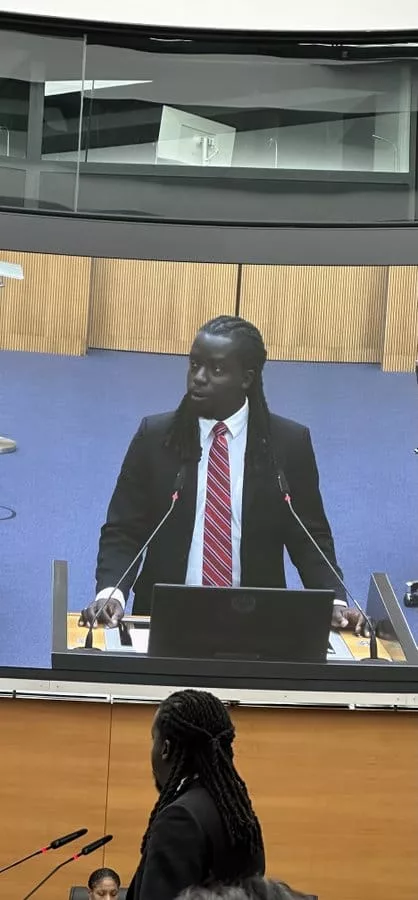
By Robert A Emmanuel
Antiguan attorney Zachary Philips stated that the international community cannot take a “myopic” view as it relates to improving the environment but must have the interests of the world, especially small island states, in mind.
Philips made the comments on the second day of the historic climate change tribunal in Hamburg, Germany, where the Commission of Small Island States on Climate Change and International Law (COSIS) has been seeking an advisory opinion from the UN body on the obligation of states on climate action.
The coalition is seeking the court to consider whether carbon emissions absorbed by the ocean can be classified as marine pollution under international law and the obligations of larger nations to mitigate against it.
The young attorney told the court that “not only are small island states dealing with the destruction associated with the adverse effects of climate change on the environment, but the burden of rebuilding after such catastrophic events rests on these small island developing economies.”
Philips who served as an AOSIS (Alliance of Small Island States) fellow and currently works in the Attorney General’s Office as a crown counsel, spoke about how the warming sea temperatures have had a major effect on Antigua and Barbuda’s fishing industry due to the shifting migratory patterns of some species.
“On the current trajectory, the children of small island states will inherit oceans that are too warm and/or too acidic to sustain vibrant coral reefs and fish species; the children will inherit economies that are locked into a cycle of natural disasters that cause damage exceeding their annual GDPs,” he argued before the International Tribunal for the Law of the Sea.
Philips reiterated the importance of not only increasing the education of citizens on the scientific evidence relating to climate change, but also on the need for equity, particularly intergenerational equity.
“International actions in the fields of the environment and development must also address the interests and needs of all countries; unfortunately, the interests and needs of small island states, regardless of their income, are not being given priority.
“The question must then be asked: is that equity? But this is not a question for this distinguished tribunal, this is a question for the world to answer,” the attorney stated.
Philips called for citizens worldwide to be on the same page when addressing climate change.
“Climate action is not a high level, theoretical exercise that only involves the leaders, experts and scientists of the world, it is a very real exercise of trying to protect living space, quality of life and the very health of human beings,” the young attorney explained.
